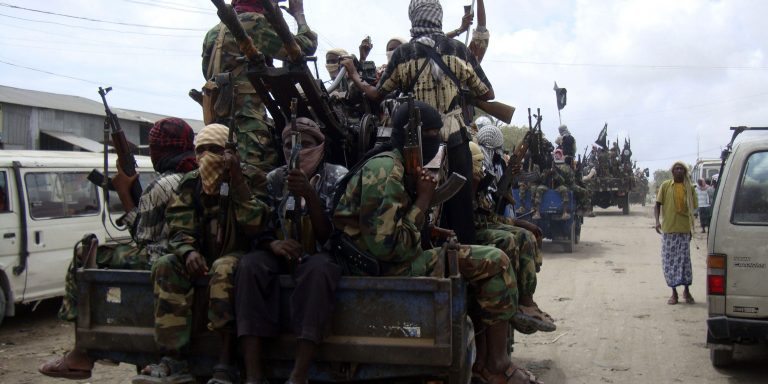INTELBRIEF
March 31, 2021
IntelBrief: Islamic State Attack in Mozambique Demonstrates Growing Terror Threat

Bottom Line Up Front
- ISCAP’s attack on Mozambican citizens and foreign workers in Palma is reminiscent of the AQIM terrorist attack in In Amenas, Algeria in 2013.
- Preparations to rescue workers from the Afungi site in Mozambique and protect civilians were inadequate or, at least, implemented ineffectively.
- Washington and Paris have been monitoring Mozambique closely, and the recent attack increases the possibility of deeper external intervention.
- ISIS’s official claim of ISCAP’s attack could indicate the two groups have reconnected after a period in which ISIS had not been claiming the group’s attacks.
Last week, on March 24, the Islamic State in Central Africa Province (ISCAP) in Mozambique, known locally as al-Shabaab (but not affiliated to the Somalia-based al-Shabaab), carried out a major attack in Palma, located in northern Mozambique’s Cabo Delgado province. Although details are still emerging, it appears approximately 120 foreigners, among other Mozambicans, were ferried from the Palma shorelines by rescue boats to avoid being killed. There were, however, dozens of people killed by ISCAP in the attack, including both Mozambicans and foreigners. Through the Islamic State’s central media apparatus, ISCAP claimed that it killed 55 Mozambican and “Christian” forces. Islamic State also released a photo of several dozen ISCAP fighters, but it is unclear when the photo was taken and whether it preceded the Palma attack. Although ISCAP had been conducting attacks over the past several weeks and months, Islamic State had not previously claimed any ISCAP attacks so far this year. Thus, this claim at the very least validates that Islamic State still considers ISCAP as a “province.”
The attack represents a clear failure of risk management. ISCAP had been attacking towns around Palma for over a year before this latest attack. Reports of the group beheading civilians and ransacking conquered towns were frequent. However, among the most well-publicized threats was that ISCAP could potentially attack the Total liquefied natural gas (LNG) site on the Afungi peninsula, which is adjacent to Palma. Many of the foreign workers at the LNG site fled to a lodge just outside of the property. As ISCAP was taking control of Palma, the workers left the site in a convoy of 17 trucks to be evacuated. However, ISCAP cut off their access to the sea and ambushed the convoy, destroying around 10 trucks, killing a number of the evacuees, and forcing others to hide in the bush. Early reports indicate that only around 20 individuals were airlifted from the Afungi site. A mass airlift from the Afungi site and the nearby lodge, if prearranged based on intelligence about the prospects of ISCAP attacking Palma, could have averted much of the disaster and casualties that transpired. Meanwhile, operations at Total’s LNG site have come to a halt.
In 2013, Mokhtar Belmokhtar, a jihadist aligned with al-Qaeda in the Islamic Maghreb (AQIM), masterminded an attack involving 40 militants on a gas plant in In Amenas, Algeria. During the attack, the terrorists took workers hostage and eventually blew up much of the site and killed 40 of the workers when Algerian security forces launched a rescue attempt. Belmokhtar’s fighters suffered at least 29 deaths. Following this attack, which was launched from across the border in Libya, the Norwegian petroleum refining company Equinor conducted a comprehensive investigation and released a report that detailed why neither the Algerian military nor Statoil (Equinor’s previous name) was able to detect or prevent the attack. The report also detailed improvements that could be made to prevent any future attacks. To avoid future attacks against Total in Mozambique, a similar comprehensive review of the security, intelligence, and operational failures during ISCAP’s attack in Palma will be essential. The reported roles of South African and other nations’ mercenaries and lack of coordination with the Mozambican military and intelligence agencies will be assessed and scrutinized.
The Mozambican military’s inability to contain ISCAP’s insurgency, coupled with ISCAP’s killing of foreigners and brutal executions of Mozambicans, could prompt deeper external intervention in northern Mozambique. The U.S. already had Green Berets on Mozambican territory, and French troops have been monitoring the situation from the nearby French island of Mayotte. ISCAP’s momentum and tactical successes will be difficult to reverse without competent security cooperation assistance to the Mozambican government and military. Still, it remains unclear whether the U.S., France, or other countries in the region will intervene more forcefully. Islamic State’s claim of the attack, assuming it was approved by ISCAP, is, therefore, somewhat surprising because it would only provide further justification for foreign forces to intervene. At least for the U.S., the decision may come down to whether the Biden administration views the war on Islamic State as limited to Syria and Iraq or also extending to its “provinces” around the world.